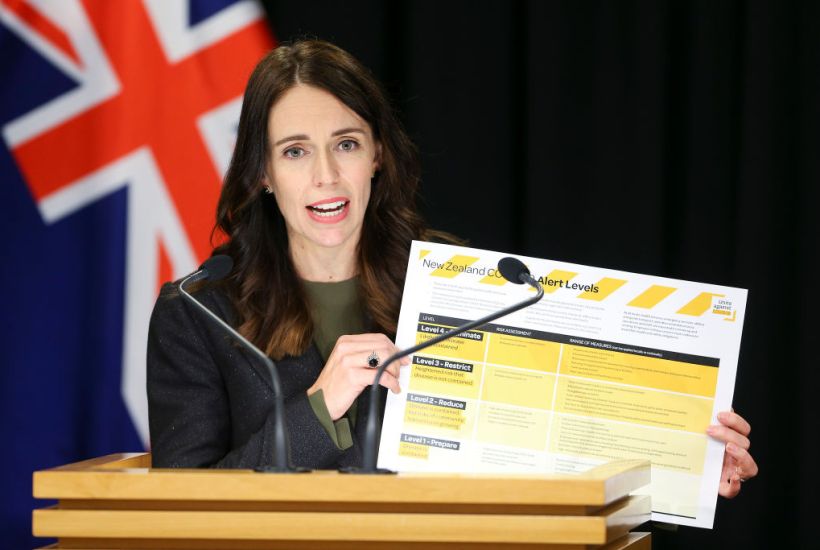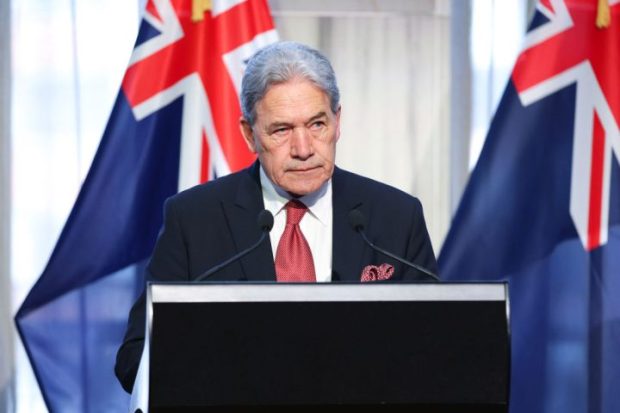New Zealand has done remarkably well over the past 18 months at protecting its citizens from the worst of the Covid pandemic – better than almost any other country in the world. Only 26 people have died of Covid in the country, after it has aggressively locked down at the first sign of a case and closed off its borders to the rest of the world. But as we have recently learned in Afghanistan, an exit strategy can easily undermine all your previous achievements.
New Zealand is now in a very difficult situation. It is currently facing its first outbreak of the Delta variant, but only a small proportion of its population is immunised. This week the country announced that its latest lockdown would be extended again. How New Zealand handles the coming months will be crucial in minimising severe disease and death.
Most scientists with a history of working on these kinds of infections have believed for months that Covid will become endemic and that herd immunity was never going to be achieved. But the belief, widely held by others, that ‘zero Covid’ or herd immunity are long-term achievable objectives has, in my view, clouded our decision-making when it comes to forging a sustainable path back to normality.
Restrictions such as social distancing and border controls were never going to stop the spread of the pandemic, either between or within countries. What these restrictions do is delay the spread, sometimes by months and sometimes by years. But all control measures ultimately fail, at least for infections like Covid that are not going to disappear globally. That is not to say that delays can’t have enormous benefits. If your country’s first Covid infection was delayed to the autumn last year you were much less likely to die from the disease at that point, as medical treatments had improved throughout the year. And if your country’s first infections were delayed even more, you might have been vaccinated, reducing your risk of severe disease and death substantially.
But as we should have known for some time, Covid vaccines are unlikely to completely stop the transmission of the virus, even after people have received two shots – although the vaccines do reduce the virus’s spread. For the original strain of Covid this reduction in transmission may have been enough to stop the virus in its tracks, but immunisation was never going to be enough for the Alpha variant – and it is definitely not going to be sufficient to stop the Delta variant.
When it comes to New Zealand, this means that even if the country immunises every child and adult over 11 years old before opening up society, the virus will still spread through the population and hospitalisations and deaths will still occur, though with complete vaccine uptake the country would see far fewer hospitalisations and deaths.
The current cluster of cases of Delta virus poses a big challenge for New Zealand. It is certainly possible that with a tough lockdown and vigorous contact tracing the outbreak could still be contained. But the odds are against that and even if this is successful with this Delta cluster, others are likely to appear. During the strict lockdown in England in April 2020, it was possible to get the R value down to about 0.6 at best and even then not for very long. The Delta variant is about twice as infectious as the virus that was circulating in the early months of the pandemic. If the UK had faced the Delta virus from the beginning, it would have only managed to drop the R value to about 1.2 and so would have continued to see exponential growth.
This is the problem Sydney is currently facing, with cases doubling there every two weeks (roughly equal to an R vale of 1.2) despite a strict lockdown being in place. So if the New Zealand authorities cannot contain this current outbreak then exponential growth of infections throughout the country is almost inevitable, even with the strictest of lockdowns. That is not an argument for stopping restrictions, as without any the peak number of cases would be much greater and their health service would be rapidly overwhelmed.
So, what strategy should New Zealand follow now? For starters, it must continue to try and contain the current outbreak and if unsuccessful maintain social distancing restrictions whilst it battles any surge in infections.
But the one thing that will reduce severe disease and deaths is to rapidly increase vaccine coverage. New Zealand recently increased the recommended interval between injections to six weeks. Will this be enough to give at least one shot to all vulnerable individuals in the coming weeks, especially if this current outbreak escapes control? Current estimates from the UK Health Security Agency suggest that a single dose of the vaccine may not be that effective at stopping infection with the Delta variant, but a single dose is still 80 per cent effective at preventing hospitalisation. New Zealand should think about increasing the gap between shots to 12 weeks, at least until vaccine supplies become sufficient.
But at some point restrictions will have to be lifted and even if very high immunisation rates have been achieved, Covid infections will rapidly increase and there will be large numbers of severe cases and mortality. For New Zealand’s pandemic strategy, these are now a crucial few months.
<//>
Got something to add? Join the discussion and comment below.
Get 10 issues for just $10
Subscribe to The Spectator Australia today for the next 10 magazine issues, plus full online access, for just $10.




















Comments
Don't miss out
Join the conversation with other Spectator Australia readers. Subscribe to leave a comment.
SUBSCRIBEAlready a subscriber? Log in